FCSVM: Fondazione Hallgarten Franchetti Centro Studi Villa Montesca (FCSVM), an Italian high education research center, coordinates PAIDEIA project. It has been historically founded in 1902 (then institutionally renewed) in the place where the Montessori method was experimented and published for the first time in 1909. It has an international vocation in educative and pedagogic research activities, and has a very relevant experience in EU projects management and development. FCSVM has strong partnership with schools and other educational organizations, as well as a solid background in research-actions activities, fostering critical thinking, diversity as a value and innovation from the pedagogical and didactic point of view.
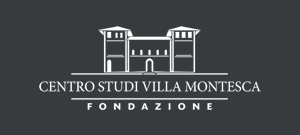
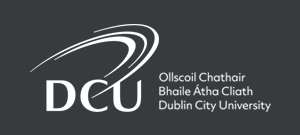
Dublin City University (DCU) is a leading, innovative institution in Ireland with over 17,500 students, including 2,600 postgraduates. Known for its rapid growth, DCU integrates five faculties: Humanities and Social Sciences, Science and Health, Engineering and Computing, Business School, and Institute of Education. It ranks highly among young universities globally and has been named Sunday Times ‘University of the Year’ three times. DCU focuses its research on societal challenges, including health technologies and educational innovation. It has secured 85 Horizon 2020 grants totaling €37.4 million. The DCU research team for PAIDEIA, led by Dr. Peter Tiernan, combines expertise in digital literacy, AI, and education, and will lead Work Package 2 to assess the current state of AI in education and identify key challenges and opportunities.
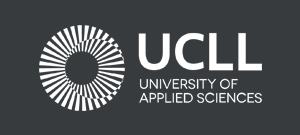
UCL Leuven, part of UC Leuven-Limburg (UCLL), is a leading higher education institution in Flanders, offering over 60 professional bachelor and lifelong learning programs across diverse fields, including Education, Health Care, Engineering, and Business Management. With approximately 14,000 students and 15,000 professionals annually, UCLL is renowned for its practice-oriented research and strong regional and international collaborations. UCLL’s research focuses on demand-driven, multidisciplinary, and regionally relevant topics. It engages in a variety of European and global projects, integrating education and research to enhance curriculum and professional development. The Research & Expertise Centre Education & Development (Ed&Dev) at UCLL, led by Ruth Wouters, specializes in educational innovation, policy, and collaborative research methods, aiming to support educational advancement across all levels.
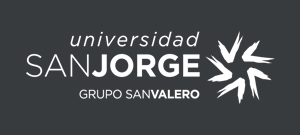
FUSJ: San Jorge University Foundation (FUSJ) is a non-profit organization in Spain dedicated to education and research, aiming to serve society by fostering knowledge and developing well-rounded professionals. The university’s educational model is built on six core elements: holistic personal development, a service-oriented culture, personalized student support, teaching innovation, internationalization of study programs, and strong ties with the business community.
FUSJ offers diverse programs through its faculties, including Health Sciences, Communication and Social Sciences, and the School of Architecture and Technology. It also hosts two research institutes: the Institute of Modern Language and the Institute of Humanism & Society, which promotes humanistic values across disciplines.
With over 2,100 students and a dedicated staff of over 140 full-time and 150 part-time educators and researchers, FUSJ leads 18 research groups, 9 recognized by the Regional Government. As part of the San Valero Foundation Group, FUSJ collaborates with other educational entities to provide comprehensive training from secondary to higher education levels.
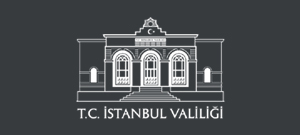
GOI: The Governorship of Istanbul (GOI) is the highest administrative authority in the city, with approximately 2,050 civil servants providing services across various fields. In project initiatives, the GOI is represented by its “EU and Foreign Relations Office,” which manages national and international projects, particularly within EU frameworks such as KA1, KA2, KA3, and Sport. The GOI collaborates extensively with the Provincial Directorate of National Education, which is the main partner for this project.
The GOI has significant experience in upskilling teachers from diverse fields, having trained over 20,000 teachers to date. It contributes to the enhancement of educational institutions by participating in policy development and setting educational standards. Due to its influential position, the GOI can readily engage a broad range of professionals, teachers, and learners, making it well-positioned to enrich project objectives.
The GOI oversees 39 District Governorships and 24 Provincial Directorates, maintaining direct contact with these public entities. It also has cooperation agreements with universities and NGOs, enabling access to a wide network of experts, professors, and researchers. The GOI aims to enhance teacher training through the integration of digital learning, sustainability, and inclusion modules developed within the project.
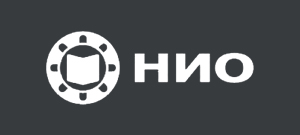
The National Inspectorate of Education in Bulgaria is a budget-supported legal entity under the Council of Ministers, based in Sofia. Its primary role is conducting inspections—external, independent expert evaluations—of the quality of education in kindergartens and schools. These evaluations provide a snapshot of the educational quality and suggest areas for improvement. The criteria and indicators for inspection cover all aspects of the educational process, assessing how national education policies are implemented. Inspection tools are updated to reflect any legal or policy changes.
The inspection criteria are competence-oriented, focusing on input, process, and outcomes related to digital skills. Inspectors assess the meaningful use of digital resources by teachers and students, students’ ability to evaluate information quality, their capacity to create digital content ethically and safely, and the academic performance of 10th-grade students in national exams on digital competencies.
The National Inspectorate of Education can contribute to the project by developing evaluation tools to measure the implementation of national policies on digital competencies, particularly in artificial intelligence.

The Ministry of Education, Sport, Youth, Research and Innovation in Malta oversees compulsory education for children aged 5 to 16, as mandated by the Education Act, Chapter 327 of the Laws of Malta. Compulsory education includes six years of primary education and five years of secondary education. It is offered full-time and free in state and Church schools, while parents of children attending independent schools benefit from tax relief measures. All schools must adhere to the National Curriculum Framework.
The Ministry promotes early childhood care from birth to age 3 and provides kindergarten for children aged two years nine months to five years. Primary education is co-educational in all state and most independent schools. Since 2016, the “One Tablet Per Child” (OTPC) initiative has provided all Year 4-6 students with tablets to enhance learning. Starting in the 2023-2024 school year, all Year 7 students receive laptops under the “One Device Per Child” project.
The Ministry supports digital literacy through the Directorate for Digital Literacy and Transversal Skills (DDLTS), which provides training, piloting, and development of digital resources. The Ministry is also piloting AI projects to improve personalized learning and formative assessments, aligning with Malta’s Education Strategy 2014-2024.
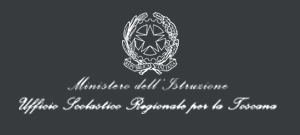
The Regional School Office for Tuscany (USR Toscana), established by Presidential Decree 347/2000, serves as a peripheral body of the Ministry of Education in Italy. It operates at a provincial level to bridge national policies with the educational services provided by autonomous schools in the region. Among its various roles, the USR Toscana identifies training needs, develops corresponding educational offerings in collaboration with regional and local authorities, promotes the creation of networks, and coordinates both initial and in-service training for educational staff, aligning with national priorities.
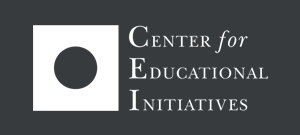
The Center for Educational Initiatives (CEI) is a non-governmental, non-profit organization in Bulgaria established in 2003. Its primary mission is to promote innovative educational initiatives and support educational reforms in the Bulgarian system. CEI encourages cooperation in education at local, regional, and European levels, implements new teaching methods, particularly those based on ICT, and fosters collaboration between public institutions, educational organizations, and NGOs. Since 2018, CEI has had a representative in the Innovative Schools Commission of the Ministry of Education and Science, overseeing a network of around 500 schools. CEI’s quality management system is ISO 9001-2015 certified. The organization operates two departments: Administration and Finances, and Educational Programs. CEI employs over 40 experts in education and frequently collaborates on international projects that develop ICT-based educational tools and resources. It also maintains an educational platform with over 22,000 users.
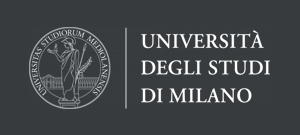
The University of Milan (UNIMI), also known as “La Statale,” is a major public teaching and research university in Italy. Established in 1924, it offers a wide range of programs, including a strong focus on juridical studies. The Faculty of Law at UNIMI is renowned for its comprehensive legal education, combining traditional legal disciplines with innovative approaches to new and emerging fields of law. It offers undergraduate, graduate, and postgraduate programs, including specializations in international law, European Union law, and comparative law.
UNIMI’s Faculty of Law emphasizes a multidisciplinary approach, integrating legal studies with economics, political science, and philosophy. It is actively involved in research projects and partnerships with international universities, offering students opportunities for academic exchange and participation in global research networks. The university provides a dynamic environment for legal studies, fostering critical thinking, practical skills, and ethical awareness among its students.
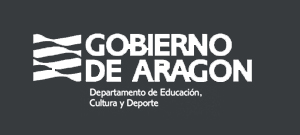
The Department of Education, Science and University of the Government of Aragon has a fundamental role in the promotion and management of education, scientific research and university training in the autonomous community of Aragon.




